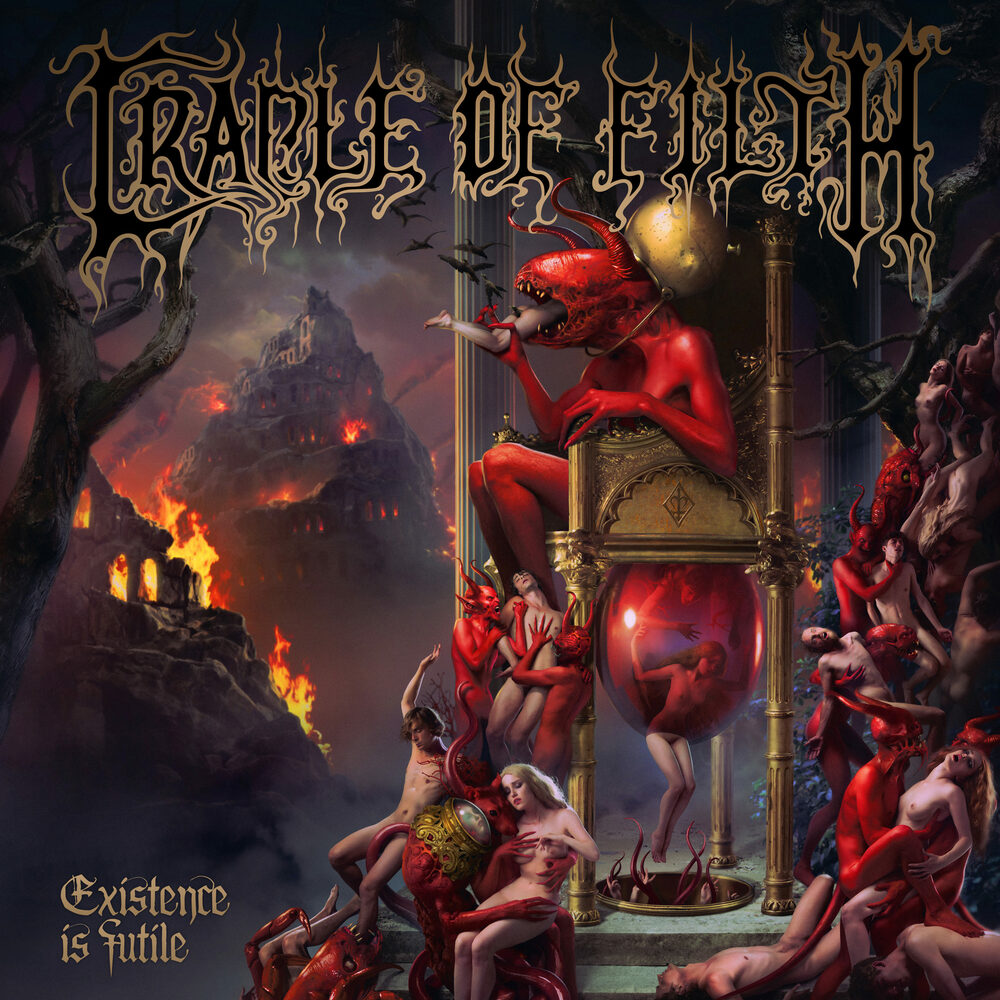 |
Country: Finland
Style: Gothic Metal
Rating: 7/10
Release Date: 14 Feb 2025
Sites: Bandcamp | Facebook | Instagram | Metal Archives | Twitter
Tuomas Saukkonen seems to be alternating his bands lately. The previous Dawn of Solace album, Flames of Perdition, came out in 2022, then Before the Dawn released Stormbringers in 2023 and Wolfheart issued Draconian Darkness in 2024. Now he's back to Before the Dawn for their fourth album and the third I've reviewed here at Apocalypse Later. For anyone new to all of these, he's a Finnish multi-instrumentalist, Wolfheart play melodic death metal, Dawn of Solace play gothic metal and Before the Dawn are in between, playing both.
This album follows closely from its predecessor, many songs starting out in gothic rock territory but building into a metal crunch. The metal is usually relatively slow and doomy, with occasional shifts in tempo like the glorious urgency midway through Invitation. The vocals are mostly clean, courtesy of Mikko Heikkilä, best known for Kaunis Kuolematon, but Saukkonen occasionally adds a harsh voice, starting on Fortress. I like both voices—Heikkilä's an elegant tenor, Saukkonen's a rich growl—but they're also highly compatible. Into the Light and Perennial put them into close proximity, Dream combines them and both work a lot better than the alternation of verses in Fortress.
In fact, Into the Light is the point where this album grabbed me. I'm used to these Dawn of Solace albums taking a while to take firm root in my brain. That happened with both Waves and Flames of Perdition and it happened here too. First time through, it sounded good but ephemeral, with nothing sticking. Second time through, Into the Light stood up for attention. Third time through, it s all started to take hold and I was relishing riffs and melodies like they were old favourites. Why it takes me a few listens with Dawn of Solace, I don't know, because that usually happens with much more complex music than this, but it happens nonetheless.
Whatever the reason, Into the Light is the first gem. Murder opens up capably enough but it also ends rather unsatisfyingly, just wandering out of the door as if it doesn't think we're paying any attention to it. Fortress is decent enough too, but seems to missing something. Into the Night is perfectly formed, with an achingly slow beat in the verses that stays achingly slow even when an entirely different beat leaps into action alongside it. Somehow it's doomy and urgent all at once and that makes it fascinating. Add a strong melodic line and those two voices working very nicely together and it becomes quite the track.
It's followed by another gem in Rival, which is so effortlessly elegant that it seems to be carved out of mahogany. If there's some My Dying Bride to be found in Into the Light, there's plenty of Paradise Lost in Rival, especially in the guitarwork during the first minute. Then it drops away to create a sense of space for Heikkilä's delicious voice to explore the way we expect from someone like Soen. And then everything builds powerfully, all the more so on Invitation, into gothic metal crunch like we'd expect from Lacrimas Profundere but with those hints at doom/death that come especially from Saukkonen's vocals.
Put all that together and the result a heady mix that's right up my alley. Everything that follows is decent at the very least, the first two songs being the weakest for me, but the best of them sit at the heart of the album, especially Into the Light and Rival but with Invitation on their heels. It plays consistently from there, with Perennial perhaps playing up the doom/death even more and the closer, Mother Earth, following suit with a minute and a half of soothing electronica tacked onto the end to fade out the album. Nothing here lasts past five minutes, including Mother Earth, if we discount that outro.
And so this is another strong album from Dawn of Solace that took me a few listens to fully grasp. I'll figure out why one day. For now, I just let it play and feel very little, let it play again and feel a little more, let it play a third time and suddenly it's right up my alley and I wondering why it took me so long to realise it. What are the odds that album number five, probably due after the next from Before the Dawn and Wolfheart releases, works exactly the same way? Pretty good, I think.



















